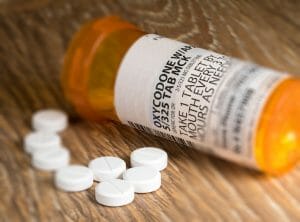The Importance of Treating Opioid Addiction as A Chronic Condition
 If you think opioid addiction, be honest: you probably don’t have a good impression of the affected party.
If you think opioid addiction, be honest: you probably don’t have a good impression of the affected party.
While drug addiction does ruin lives and can be catastrophic, part of this is due to poor reputation and ineffective care methods.
Drug addiction does rely on an individual’s particular actions and choices, however, it may have more similarities to a chronic affliction than some may believe.
Curious as to how? Read on while we take a deeper dive into the science of opiate addiction.
What is opioid addiction?
According to the CDC, opiate addiction has become an epidemic. This includes the use of heroin and other prescription pain medications for non-medical uses.
Heroin and oxycodone had risen to epidemic rates more than 5 years ago, and since then, the rates of use have only continued to soar.
Opiate addiction is an addiction to one of these substances, and it’s extremely common.
The Drug Abuse Warning Network (DAWN) has estimated that over 2.3 million emergency room visits have resulted from some form of drug abuse, and more than half of those were due to the misuse of pharmaceuticals.
Why is it chronic?
There’s a lot of evidence to support the idea that addiction is a mental health issue at its core. Therefore, it’s a disease of the brain.
Addiction triggers our brain’s reward centers as well as hitting its motivation and memory cues. Addiction scientifically causes our brains to act differently than they normally would.
Opioid addiction works the same as other chronic diseases, and it’s most noticeable in its cycles of relapse and remission.
In fact, the relapse rates for drug addictions are remarkably similar to those of asthma and hypertension. Drug addiction has a higher rate of relapse and remission than type 1 diabetes.
How to treat it
While opioid addiction can be treated, it can never be cured. With proper management, it’s possible to put the disease into remission, but it’s just that: a disease. It takes constant management.
The first step in treating addiction is to actually view it as a chronic disease. You want to strive for “management” rather than “cure.”
In the short term, treatment (particularly for those in a facility for the first time, or for a relapse) needs to be focused and procedure-oriented. However, after some time, it’s important to shift gears and focus on preventative measures.
This means that the disease will be treated in different stages. Think of it as going up a ladder.
Once the patient is stabilized, it’s possible to begin the transition into self-management.
Another way opiate addiction is similar to other chronic illnesses is the methods available for treatment. Medication and other methods can be used during recovery to help manage the disease and put the afflicted party on the right track.
Conclusion
Drug addiction is harmful and destructive to everyone, not just the user. If you’ve been exposed to drug addiction or have a loved one currently working through it, the best you can offer them is proper medical care and understanding.
If you have any questions regarding drug addiction and proper treatment methods, please don’t hesitate to reach out.
Reviewed and Assessed by
Taylor Brown, B.A.Com., MAADC II
Tim Coleman, M. of Ed.



